Content Writer:
⌛ Reading Time: 10- 15 mins
Posted On: October 30, 2017
Every year I update my salary guide. As part of this process, I examine and analyze every vacancy and compare it to the salary data I get from job seekers. It’s a fascinating task (no, really, it is) because it tells me all kinds of things about the state of the jobs market and what’s happening in the world of HR. By reading the numbers I get a black and white insight into what trends are happening, where the growth is, and what my corporate and applicant clients need to know.
But when I sat down to do it this year, something leapt out at me like nothing else. And it was this: there a lot fewer jobs paying more than $150,000 a year than those paying below that figure.
In other words, $150K is the line in the sand. It’s where the jobs dry up and the market thins. It’s where careers top out and get stuck. It’s the point where a lot of HR people resign themselves to salary stagnation.
Duck below the $150k threshold and things look very different. Here, there are plenty of roles. There is transience (i.e. people move about regularly). Most people looking to build a career have options.
But above that - and especially as you push onto the high one hundreds or low two hundreds - there is a dearth of decent roles and a glut of good candidates.
The career triangle is changing shape
The first thing to say is that it’s not an entirely new thing. Most professions are characterised by the career triangle, where there are lots of roles at the bottom and then fewer at the top. This is only natural. Not everyone can be HR Director can they? But when we picture a career triangle, most of us probably picture an equilateral triangle. In case you can’t remember Year 8 maths, that’s the one with three equal length sides. It narrows very gradually as you move up.
But that’s not what the HR career triangle looks like anymore. The career options for HR professionals now narrow much sooner than they did in the past. People stop rising when they hit middle management and instead of an equilateral triangle, the HR career triangle is more of an isosceles triangle.
The limitations of being Gen X
One of the main reasons the HR career triangle is stretching and narrowing is simply because of the number of people compared to the number of roles in today’s market.
There are a lot of baby boomers sitting towards the pointy end of that triangle who haven’t retired yet and are instead staying on to top up their super funds.
Don’t get me wrong. I’m not saying that they should move on. We’re living longer, we’re fit for much longer, and it’s only natural we should work for longer too. But that does have ramifications for the next generation coming through - the younger Gen Xers and older Gen Ys, now in their 30s and early 40s. We’ve learned that we can’t expect to be hitting the same career milestones at the same point as those 10 or 20 years older than us.
And many of us now seem to accept we won’t be travelling as far up that triangle as we once might have hoped.
The squeeze on the middle
But it can’t all be pinned on the boomers. We also need to look to the waves of ‘drives for efficiency’ that have been hitting corporate HR departments for almost a decade now.
These have usually involved telling people at the top to be more ‘hands on’ and the people at the bottom to ‘step up’. And, the result of this is that the middle managers, who were the link between the two, have less to do - much less. In fact, may of them have so little to do that they find themselves without a role at all.
In very large corporates it has been a bit more sophisticated than this but the effect has still been the same. There, HR Operations teams have centralised volume tasks and newly established centres of excellence have pushed the task of designing of new HR and change initiatives to SMEs - usually at the expense of skilled HR people who sit in the middle of my triangle.
The result is that it’s a long way to the top from the middle-tier HR jobs to HR Director without all the nice career stepping stones along the way that once existed - you know, the roles where you’d learn the skills and get the experience you needed to one day run the show.
The $1,525 question
So with fewer roles at the very top and a much longer road to get there, the logical question becomes is it worth it? And, in strict dollar terms, I’m not sure it is.
Think about it. What’s the difference between making $150,000 and year and $180,000 a year? I know, it sounds obvious enough: it’s $30,000 a year, or $2,500 a month.
But after tax we’re actually talking $18,300 a year or $1,525 a month.
For that extra $1,525 in your pocket you’re usually going to be expected to work a lot more hours and you’ll be put under a lot more pressure. You probably have to work weekends, spend time away from the family, and do things you’d prefer not to do. Because, quite simply, when something goes wrong, for $180,000 a year - or just $1,525 a month more than you used to make - the buck now stops with you.
But life is about more than money, right?
Of course you can’t analyse it just by numbers. Senior roles are often stimulating and provide some people with a lot of job satisfaction. But they’re also challenging. You’re now going to be responsible for those junior staff who are making mistakes and looking for fast career progression without putting in the hard yards like you did. They’re going to be leaving you if they don’t get their way and it’ll be your job to placate them while making sure you get the best results for the business.
You’re also going to have those senior staff now approaching you to personally, asking you to deal with the most sensitive people-related issues in your organisation and holding you personally responsible for your team output.
For many of us, this sounds like a lot of extra hassle. For some of us, it’s exactly the kind of complexity and pressure that will bring the best in us. Only you can decide which side of the fence you fall on.
Then there is the status, of course. A lot of people like being the boss. There’s nothing wrong with that either, especially if you’re good at it. And that alone will make some people keep striving towards the pinnacle, no matter how hard it’s becoming to reach it.
Is it time to re-evaluate?
What is your plan of attack?
That said, you don’t have to be gifted to realise we can’t all make it to the top. A look over my salary numbers and job vacancies reinforced that in very real terms. So I think it’s time that the HR profession sat down and thought long and hard about what other career paths there are and how we stay engaged and stimulated. Do we encourage more movement across specialisms? Do we start moving internally or externally into other business roles, such as change and operations? (For instance, look at how well lawyers and accountants do just that.)
Or do we just sit back and accept small, incremental rises for the rest of our career once we hit middle management?



